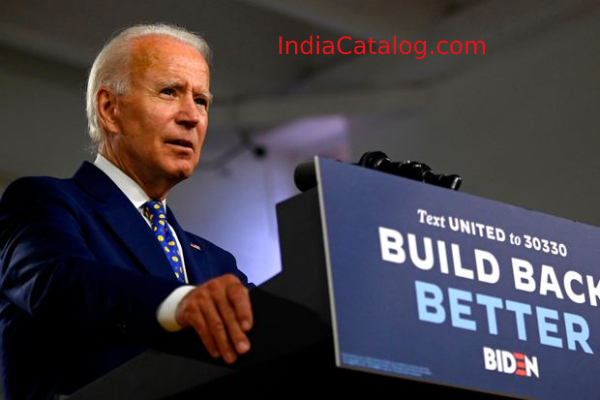Excise on petrol, diesel cut by Rs 2/L; Govt may suffer Rs 26,000 cr loss
.jpg)
Facing public resentment over the recent spike in fuel prices, the government on Tuesday cut the excise duty on both branded and unbranded petrol and diesel by Rs 2 a litre from Wednesday. According to sources, the finance ministry was initially reluctant to reduce the duty due to revenue concerns, but relented after discussions with the petroleum ministry on implementing steps to bring down petrol prices to Rs 60-65 a litre.
While this would hit the revenues of the exchequer by Rs 13,000 crore in the second half of the current financial year at a time when the fiscal deficit has already touched 96 per cent of the Budget Estimates, consumers will get relief as the move would reduce the consumer price index (CPI)-based inflation rate by 9 basis points as a first round impact.
“(The) government has reduced the basic excise duty on petrol and diesel (both branded and unbranded) by Rs 2 a litre with effect from October 4, 2017. The revenue loss on account of these reductions will be about Rs 26,000 crore in a full year and Rs 13,000 crore in the remaining part of the current financial year,” the finance ministry announced on Twitter.
This comes at a time when diesel in Delhi scaled an all-time high of Rs 59.14 a litre, while other cities, too, saw a considerable increase in prices. The price of petrol in Delhi was at a two-year high of Rs 70.88 a litre on Tuesday. Currently, taxes constitute the excise duty of Rs 21.48 a litre, 30 per cent of the price of petrol, and Rs 17.33 a litre, 29 per cent, of the price of diesel.
Devendra Pant, chief economist at India Ratings, said the move would reduce the CPI inflation rate by around nine basis points, with petrol accounting for eight basis points and diesel one basis point. The CPI inflation rate rose to 3.36 per cent in August from 2.36 per cent in July.
While the revenue loss from the excise cut for the remainder of FY18 was not very large, it would exacerbate the concerns posed by other fiscal risks, such as the decline in the surplus transferred by the RBI and the possibility of shortfalls in inflows from disinvestment, etc, said Aditi Nayar, principal economist at ICRA.
Moreover, state governments’ revenue growth may also be impacted, as many of them impose VAT on fuels on an ad-valorem basis, she added.
On September 20, Finance Minister Arun Jaitley had ruled out a cut in the excise duty. “We need excise revenues to push public investment, and if any state wants to reduce the excise duty, then they can do so,” he had said. With subdued tax collections and the fiscal deficit touching 96 per cent of this year's target in August, the Union government was reluctant to cut the excise duty on petrol and diesel.
The government, however, is clear that there will be no rollback of the market-linked pricing policy for petrol and diesel. The United Progressive Alliance (UPA) government had decontrolled petrol prices in 2010 and had started a phased decontrol of diesel prices. In 2014, oil marketing companies moved to full market-linked pricing for diesel under the National Democratic Alliance (NDA) government.
Out of the overall excise collection, 42 per cent is transferred to state governments. However, industry experts and the government believe that prices will ease in the next few weeks as international prices are showing a declining trend.
Besides the excise duty, state governments levy the value-added tax in the range of 25-40 per cent on petrol and 15-25 per cent on diesel. Many state governments have also increased VAT on petrol and diesel in the past one year. While Kerala increased VAT on petrol to 34 per cent from 26 per cent, Maharashtra increased it to 47 per cent from 27 per cent, and Delhi to 27 per cent from 20 per cent.
Interestingly, since the implementation of daily pricing on June 16 this year, the price of the Indian basket of crude oil has gone up by around 19 per cent from $46 a barrel to $55.36 a barrel. However, domestic retail selling prices of petrol and diesel in Delhi have gone up by only 8 per cent during this period.
"We see a decline in crude oil prices now. Hence, there will be a balancing of fuel prices in the coming weeks. The positive global changes include an increase in rig utilisation and also a rise in production from Libya and Algeria, which will increase supply,” said Dhaval Joshi, an analyst with Emkay Global Financial Services.
According to Petroleum Minister Dharmendra Pradhan, the main reason for the increase in petroleum product prices is the increase in international prices due to hurricanes Harvey and Irma in the US, following which 13 per cent of the US refinery capacity was shut down. “In the past three months, the FOB price of petrol and diesel in the international market increased by 20 per cent. The recent rise in prices is transient in nature and will ease in the coming days,” said a source close to the development.
Pradhan has asked the Goods and Services (GST) Council to consider bringing all petroleum products within the ambit of the GST so as to harmonise the tax structure. The Union government also claims that the tax collected from petroleum products has led to an increase in allocations towards agriculture and farmers, rural development, and other infrastructure projects. Spending on agriculture has increased by 71 per cent compared to 2013-14. Spending on road transport and highways has doubled in the past three years, while the allocation to rural development has increased by 34 per cent.

.webp)
.webp)
.webp)
.webp)
.webp)
.webp)
.webp)
.webp)
.webp)
.webp)













